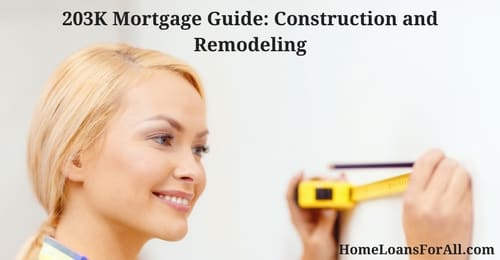by Mike Plambeck
Have you been asking yourself if now is the right time to buy a second home? Maybe you spotted the perfect vacation house in Tahoe and you are hesitant to take the plunge and finally make it happen. You can argue yourself in circles trying to come up with the perfect answer, but you probably won’t get one. There are some quick points you’ll want to consider. Interest rates are actually pretty low right now, making it the perfect time to get a loan, and mortgage interest might be tax deductible (just think about that possible tax break come April!). Plus, you can still find properties for pretty low prices left over from the recession in a lot of markets despite the fact that vacation homes appear to be on a nationwide rise.
If you think you can pull it off, right now is actually a pretty good time to buy a second home. If you have been waiting for some big sign from fate to point you in the right direction, consider this that sign.

Ready To Buy a Second Home?
Be Ready for the Unexpected
The real estate market is unpredictable, but so is the future. You need to consider all of the ways you would use a second home in the years to come. Though you may plan on only using this cute house in Tahoe for family vacations right now, you might change your mind in the future. Ultimately you could decide that you want to actually rent it out as a vacation home. That especially could be the case once you retire and could use the extra income. If you’re ready to buy a second home, you need to buy a property in an area that is popular enough to attract tourists. You also need to find one that allows you to rent it out for short periods of time.
Another possibility? Perhaps you’ll buy a second home, fix the property up and sell it for a profit. Fix and flip ventures have become a popular way for investors to make their mark in the real estate industry. Key takeaway from these two simple examples: Consider all the potential opportunities the property could provide before making an offer.
Do You Need a Loan?
So, what sort of vacation home are you buying? Because the answer to that question might determine what sort of loan you should look into, as different types cater to different needs. Let’s say you find a house that you love but it needs some serious refurbishing. In this case, you might want to look into hard money rehab loans. A rehab loan is more niche than other loans, as they are usually handled by lenders that understand all that goes into work in progress properties. This type of loan is generally based on the actual price you paid and not the projected price it will be worth after you are done improving the home. This protects the lender on the off chance that you do not go through with your improvement plans. A hard money rehab loan is different than your traditional FHA 203K rehab loan.

Have You Already Been Preparing?
When it all comes down to it, if you have already been planning for this purchase, you should stick with your plan and see it through. Especially if you have already made the lifestyle changes necessary to maintain a specific budget (you know, like saving up enough for a 20% down payment). Keep your goal in focus and avoid looking at day-to-day interest trends. Instead, pay attention to overall real estate market trends that rise to the surface over a long stretch of time. Yes, the real estate market and interest rates will definitely fluctuate, but a comprehensive view of market trends can help you make a more informed decision.
See Related Articles:
Getting Your Mortgage Approved: What Loan Officers Look At
Benefits of Working with Private Money Lenders
by Sacha Ferrandi

Real estate investments offer plenty of benefits, and taking the right steps can lead to lucrative profitability. Unfortunately, real estate investments aren’t always as straightforward as they seem, and buying real estate property can be a daunting challenge. One of the first and most pressing tasks you’ll encounter comes in the form of financing. Buying a residential property is expensive, and investors looking to purchase and rehab homes will shell out even more before they can even begin to hope to break even.
Traditional lending institutions have tightened the reins on loans, especially when it comes to fix and flip ventures. If you’re looking to purchase a private home and fix it up, you’ll likely need to look for alternative funding. Alternative financing methods have become the preferred route for many entrepreneurs looking to diversify their portfolio and make their mark on the real estate industry.
Cue private money lenders, your new best friend.
Private money loans are a form of short-term financing that’s secured by real estate. These loans are funded by private investors, and secured by a lien on your tangible real estate assets.
So Why Work With Private Money Lenders?
More Lenient Regulations
Borrowing money always comes with its caveats, but borrowing from public banks and financial institutions can involve numerous legal requirements and stringent restrictions. Due to government sanctions, you’ll be subjected to a bevy of paperwork requirements, zoning laws, and more. A private lender involves much fewer sanctions, meaning less red tape for you to deal with.
Because private lending companies are generally much smaller, and subjected to less stringent regulations, they are more apt to be flexible with your terms and approval rates.
Easy Approval Processes
Private money lenders are mostly concerned with collateral. If you’re looking to purchase an investment property, the private money lender will offer as much as your property is worth. If you’re borrowing against another property you already own, the lender will care about that property’s value. If you have viable equity in a property, your loan is likely to be approved. This easy approval process can expedite the funding process, which is key for many investors, especially those looking to jump on investment opportunities when they arise.
An Expedited Timeline
The new regulations regarding mortgage lending have lengthened the amount of time it takes to get approved for and get funding from traditional lenders. Hard money loans are fast. It can often take anywhere from 30 days to a few months to simply get approved for a traditional loan—tack more time on top of that to actually see the funds. Private money loans offer a significantly quicker approval time. Some loans can be approved within minutes, with funds distributed within a weeks’ time. Consider this scenario: You come across the perfect fix and flip property, but competition is fierce. If you can’t secure the funding quickly enough, you’ll lose out on the real estate opportunity of your career. In cases where time is of the essence, private money lenders trump traditional lenders.
Easy Terms
Traditional lenders and public banks place a great deal of emphasis on credit score when it comes to the loan decision. Those with foreclosures, bad credit scores, or bankruptcies on their record aren’t likely to get approval for real estate loans. While private money loan investors will consider credit scores, they set their own criteria for acceptable credit. Generally, private money investors are more receptive to lower credit scores; as a general rule, conventional mortgages require credit scores higher than 640. Compare that to private lenders, who generally require credit scores higher than 550.
Traditional mortgages are limited; the typical lender won’t issue more than 4 to 10 mortgages to the same individual. Private money lenders don’t put a cap on the number of hard money loans an individual can apply and be approved for.
Numerous Property Types
Traditional loans are generally only available for those looking to invest in single-family homes, two to four-unit homes, and certain types of commercial properties. Private money lenders offer financing for a variety of properties that fall outside of conventional parameters. These can include rehab loans for homes intended for fix and flip ventures, mixed use properties, non-owner occupied rentals, and other real estate transactions.
If you’re interested in investing in something other than a single-family home, a private money loan is likely your best bet. From apartment buildings to duplexes, condos to multi-unit homes, this type of financing covers numerous investment opportunities.
Another important factor? Conventional mortgages and loans are generally only issued on homes that are considered to be in good condition. Traditional institutions aren’t generally willing to fund the purchase or renovation of a house in disrepair. Private money lenders often lend on properties intended for renovation.
More Flexibility
If flexibility is your top priority, you can’t beat the benefits of hard money lending. Private money lenders don’t use a standardized underwriting process, meaning each deal is looked at individually. That means your loan will receive individualized attention from a team of lenders—good luck attempting to get that kind of treatment from a traditional lending institution. This individualized attention may give you the opportunity to tweak certain details, whether that be your repayment schedule, interest rate, or other facets of the process. Hard money loans are available in a variety of different terms. From payment plans to length of term, you can generally work with a private money lender to tailor a hard money loan to your needs.
More Forgiving and Understanding
Sometimes things don’t go the way we plan, but smart investors prepare for the potential of this less than savory outcome. Mistakes are made, the market doesn’t do as well as expected, or your house sells for less than you anticipated—do you have any hope of debt forgiveness? With traditional lenders, no. With private lenders? Maybe.
When compared to corporate financial institutions, private money lenders are generally more willing to forgive late payments. However, this comes with its own set of caveats. Your lender will forgive debt when it benefits them financially. Their main priority involves collecting all of the principal and interest you still owe. If they realize they simply won’t get all of their investment back, some lenders may elect to modify the terms of your loan—which often includes some type of debt forgiveness.
Don’t count on debt forgiveness, though. While more common amongst private money lenders, it’s still the exception—not the rule. In most cases, debt forgiveness is granted when the lender realizes they can make more by allowing you to repay most of your debt, instead of reclaiming your property. To receive as much payment as possible, private money lender may modify the terms of your loan in various ways. They may also reduce your total debt burden to make your monthly payments more manageable—and more likely to get paid off.
Conclusion
If you’re looking to invest in a real estate property and don’t have the personal capital to finance your venture, a private money lender could be the right solution. With quick approval processes, easy terms, and flexibility on your side, your real estate venture is well-poised to be a success. Consider private money loans for your upcoming real estate transactions and advance your investments.
by Mike Plambeck

Today the average person has many options when it comes to lending funds to buy a new house. One, the FHA mortgage, has been around the longest and is the most used one since 1934, but here we will go through all your options when it comes to obtaining the means to finance your property.
The competition to the Federal Housing Administration (FHA) loan program are programs like the Fannie Mae, Freddie Mac, HomeReadyTM, Home Possible®, VA loans and USDA mortgages. And since “one size fits all” isn’t the case when it comes to mortgage programs, it’s smart to compare.
The VA loans are only eligible for the military and veteran applicants, and being limited like this, they cannot be used by other people. Furthermore, the USDA loans are only available in less densely populated areas and have severe income restrictions. The conforming and conventional loans like the Fannie Mae and Freddie Mac often demand higher credit scores making them harder to reach by people with slightly lower monthly incomes.
FHA Mortgage and Down Payment Comparisons
Each mortgage program differs in many things but the one thing that’s most important for people looking to lend money are the down payments.
Namely, the FHA mortgage has two options when it comes to down payments: People with credit scores of 580 or above need to pay 3.5%, while those with scores between 500 and 579 pay 10% in down payment. The conforming 97 programs require 3% down, while the other conforming and non-conforming financing require 5% or higher. The HomeReadyTM and Home Possible® need 3% in down payment while the VA mortgages and the USDA home loans have zero down required.
Judging by the comparisons, one will see that FHA loans require higher down payments than many of the other mortgage plans, but there are additional conditions to be taken into consideration: FHA is found to be the most useful and easy to get by people facing hurdles like modest incomes or credit challenges and it allows for the down payments to be gifted or borrowed from acceptable sources.
Seller’s Contribution Limits
If you have a limited budget, these contribution limits that each mortgage plan has, will make a huge difference when buying a house. This is why they are something to be definitely taken into consideration.
The conforming mortgage plans allow for 3% for 97 % mortgages, while the FHA mortgage buyers get a 6% limit, and the VA buyers get only 4%.
Loan Size Limitations
All the mortgage plans have their own limits when it comes to loan sizes and most of them and closely tied to housing prices in the local area.
The FHA mortgage has its limitations set by county or MSA (Metropolitan Statistical Area). For single-family residents, these limits range from $275,665 to $636,150 in most parts of the country. However, the ranges are tighter, meaning that the limits are higher in the states like Alaska, Hawaii, the US Virgin Islands and Guam and also they have stricter rules when it comes to duplexes, triplexes, and fourplexes.
The conforming mortgage plans along with the HomeReadyTM and Home Possible® have their limits ranging from $424,100 to $636,150 or even more in the high-cost areas. The VA plans although hold the same limits for 0% down payments, they can go higher if a down payment is included. And while the USDA has no limits set, the rest of the conforming and non-conforming vary to the guidelines of the lenders.
General Guidelines
There are several general guidelines that are different with each mortgage loan and can be of a great importance and something to pay close attention to.
Property Guidelines
When it comes to financing a non-traditional property, a condo, co-op, or a manufactured home you will find that the guidelines of the FHA loans aren’t as strict as the rest of the mortgage programs out there. With the FHA, you are allowed to apply for energy-related improvements or renovation costs in your loan as well.
FHA Mortgage credit score guidelines
The credit scores are what make people hesitant as to whether they make the right fit for a loan.
The FHA has their minimum set to 580 which is very helpful to applicants with limited credit histories, low incomes, or high account balances and with old derogatory entries. However, the FHA loans are not subprime mortgage plans and lenders are allowed to set higher minimum scores – 640 being the most common one.
The lenders of conforming and non-conforming loans have their minimum scores range from 620 to over 700 – depending on the program and the lender, while the VA and USDA have no minimum scores set, however, the lenders individually set cutoffs at 640.
The fact that borrowers with low credit scores aren’t charged with higher rates or mortgage insurance premiums acts as a relief to the budget of people who are users of the FHA or other government mortgages. This is because oftentimes the loan mortgage insurance is more expensive for borrowers with lower credit.
Qualifying Guidelines
According to statistics shown by the mortgage tracking firm Ellie Mae, FHA mortgage plans turn more flexible than the rest of the programs. For instance, the credit scores are set lower and there are fewer restrictions for people whose records show recent bankruptcy, foreclosure or short sale.
Numbers show that in August of 2016 the count for FHA approved loans was 687, while with the rest of the home loans were lower, 754 approved loans. According to the Ellie Mae reports, the debt-to-income ratios in FHA are more flexible than with the conventional borrowers, up to 45% compared to 34%.
When it comes to the HomeReadyTM and Home Possible® mortgage programs, they are considered to be flexible as well, because they allow for lenders to take into account incomes from the other occupants of the home, without the need for them to go on the mortgage or title.
The Right Applicant For an FHA Mortgage
If you fall under some of these categories below, then you should consider the FHA mortgage plan as the right one for you:
- Credit scores under 680
- Able to make a down payment of less than 5%
- Too high income to be considered eligible for the HomeReadyTM or Home Possible®
- Buying property in city area
- Not a military or a veteran for VA financing
- Plan on buying a multi-unit property but living in one unit
- History of recent bankruptcy, foreclosure or short sale
- Buying a fixer-upper
Considering Other Loans
Even though FHA holds many advantages over the rest of the mortgage programs, its main downside might be its mortgage insurance. The coverage can be expensive between the upfront 1.75 % premium, and the annual premium of 0.85 % for most loans. Also, an important thing to take into consideration is that the FHA insurance, regardless of your loan balance, never terminates.
If you are able to take a down payment of 5% or higher, and/ or you have an excellent credit score, other programs will probably cost less than an FHA home loan. Applicants that have high credit scores should also consider the HomeReadyTM or Home Possible® mortgage plans. Also, if you are eligible for other government-backed loans like USDA or VA, go through them first because in your situation their costs are likely to be lower.
Conclusion
At the end of the day, consulting with a mortgage lender might be the best if you are having doubts as to which plan suits your financial situation the most. Request quotes from all of them and make the most optimal choice for your own individual situation.
by Mike Plambeck

Being your own boss gives you a feeling of freedom unlike any other 9 to 5 job, however being responsible for your future affects many areas of your life. One being owning your own house. While it’s also a thing that gives you a sense of freedom and happiness – being able to live on your own, not depending on anyone – it might also be a thing that is hard to get to while being self-employed. Or at least that’s what many people think nowadays. So, how can you successfully apply for a mortgage while self-employed?
Here we are going to tell you that these two aspects of your life don’t necessarily need to contradict themselves if you do them right.
First, let’s see why self-employed people have a hard time getting a loan then how to apply for a mortgage while self-employed.
Apply For A Mortgage While Self-Employed and What’s Needed
Tax Return Documentation
In the past, lenders required no documentation or low documentation when applying for a loan as a self-employed businessman and this made all things easier and more efficient. However, in time, this proved to be used as an abuse of the old system, so everyone had to start presenting a thorough documentation of their tax returns showing how much they earn annually. By this change in the system, mortgages become harder to reach by self-employed people, even though some of them earn more than a typical 9 to 5 worker does.
The reason for this is their practice to write off a lot of expenses in order to get a tax break. What they don’t know is that by doing so, they might pay less in taxes but they also make it (almost) impossible to be eligible for a loan. Underwriters would always say that the self-employed person doesn’t show enough income to lowers the risk of not returning the money to the lender. Picture this: You earned $70,000 last year, but you wrote off $35,000 as expenses like equipment or mileage so what you were left with was a $35,000 annual income or a $2916 per month. Now you want to get a mortgage of $1500 per month, but this shows as more than 50% of your monthly income and it is only logical that the underwriter will say that you have a high risk of not repaying your debt and will not approve you as such. Normally, with the $70,000 you are earning around $5800 a month and a mortgage of a $1500 is something you can easily pay, but the documentation of your tax returns show different, thus you get declined for the loan. You can use a home affordability calculator to determine what your monthly mortgage payments will be.
Planning In Advance
The underwriter takes two years of your income into an account and calculates the risk from there. So it is only logical that you need to plan for your mortgage at least 2 years in advance. We recommend speaking to an accountant and a mortgage professional, explaining the situation and having some details about the house you want to buy or refinance. Your lender or mortgage professional will calculate how much income you need to show each year in order to be eligible for a loan. Once that’s done your lender will explain what they look at in order to get your mortgage approved.
This being said, as long as you have an adequate income and proof of your self-employment income for the last two years, you are going to be a successful mortgage applicant and can apply for a mortgage while self-employed.
Presenting The Right Documentation
While it’s true that you, as self-employed, will need to gather 5 times the amount of documentation a regular W-2 applicant needs to, it shouldn’t be something that scares you off as long as you planned in advance. If you kept well-arranged documentation the entire process comes down to just making paper copies or transferring everything onto a PDF file and sending them over to your lender.
Below we provided you with the list of documents you need to have in order to apply for a mortgage while self-employed, but if you have some questions or unsure of the process, you can talk to your CPA, as they are usually familiar with the process and know exactly what you need to obtain.
Needed Documents:
- Personal tax returns for the last two years
- Business tax returns with schedules K-1, 1120, 1120S
- Balance sheet
- Business license
- Loss statement and year-to-date profits
- A signed letter by a certified public accountant proving you are still in business
From this point on, the lender gathers and organizes the documentation, opening a case for your approval. And, as long as you’ve gone through the correct planning you should be just fine to apply for a mortgage while self-employed.
by Mike Plambeck

Home remodeling can at times be as demanding as buying a new house altogether. It’s a great experience and you’ll love the end result, but there are however things to consider, and details to pay attention to. This being said, financing shouldn’t be one of the problems you are facing when planning a total remodeling of your home. At least not with the FHA 203K mortgage loan that is made just for that: construction and remodeling. But let’s dive deeper into things and see exactly how it works.
Types of FHA 203K Loans
Before making any plans to get financed you need to estimate how big your project is. If it’s not a huge one where you reconstruct your entire house, then you can consider the FHA’s “Title 1” loan which isn’t tied to a refinance or home purchase.
And if your project plans require more money, then you might need to apply for the FHA 203K mortgage. The great thing about this plan is that it adds all the costs of the remodeling to your loan and the final improved value of your home is calculated into your loan-to-value ratio.
Whichever of these you go with, there will be a FHA-approved mortgage lender working with you, calculating the costs of your upgrades. Your lender will determine what you need to get approved for your mortgage.
How Does The 203K Mortgage Work?
It is useful to know that you can use your FHA plan not only for remodeling but as help with your house purchase as well. Another option is to use the 203K mortgage and include your home remodeling in the same loan. The standard FHA 203K mortgage plan is available for people who need remodeling works above $35.000, while the FHA Title 1 loan is intended for smaller, not so costly projects.
The FHA 203K mortgage doesn’t require a home equity which is a relief for those who don’t fall under that category and it also saves you from the surcharges of the cash-out refinancing that bring many risks along with it.
FHA 203K Requirements
Compared to other mortgage plans, the FHA one isn’t so strict and its criteria aren’t that many and hard to reach, but there are few to follow if you want to apply:
- The house you are financing must be a minimum of 1 year old
- You need to apply for a loan that is not higher than the amount set for your area
- Your budget needs to be $5000 or higher for the renovation project
FHA Guidelines To Follow
Although not very strict, the FHA mortgage does limit your intentions of remodeling to some extent. This means that your constructional work should be necessary and vital to your normal everyday living and luxurious items aren’t part of it. So to avoid misunderstandings and planning of things that aren’t covered, here are home improvements you can do using the FHA financing:
- The elimination of health and safety threats
- Making the home disabled-friendly
- Reconstruction of the floor, or adding a new one
- Rebuilding and changes of structure in the house
- Landscaping and site improvements
- You can replace or add roofs, gutters and/ or downspouts
- Environmentally friendly systems and green renovations
- Building a well or a septic system
- Reconstruction or replacement of plumbing systems
- Modernizing and updating certain features of your home and its appearance
Fixer-Uppers On FHA Mortgages
In case you opt for a fixer-upper, here are steps you need to follow in order to remodel your house and have no problem with the funding source:
- Before choosing, make sure to look into several mortgage quotes. This will ensure you get the most suitable deal. Also, you need to hire a lender that has an approval to do 203K loans
- After applying and getting a pre-approval letter, find a property that matches your needs. Make sure it supports a 203K mortgage in order for you to complete the purchase
- Find a licensed contractor who will write an estimated sum of money for the work needed and materials required
- In case the expenses exceed $35,000, hiring an FHA 203K consultant will help you get a detailed cost estimate from the contractors
- You, then, will get your home appraised, after receiving a green light from your lender
Before all else, you need to know that you aren’t allowed to do any work on your home yourself unless you are a licensed, professional builder. When working with this kind of loan, note that first you must submit all the improvements you plan on making, and then the loan will fund the expenses completely – once they are completed.
Refinancing Guidelines
You yourself can calculate the approximate sum of money you can get with the FHA loan if you follow these guidelines:
- The mortgage rate you currently have plus the renovations to which closing expenses are added as well, or
- Current home value plus the costs of the construction works, or
- Or multiply the 110% of the improved value by FHA’s 97.75 % maximum loan-to-value ratio – 96.5 % for purchases.
After doing the calculations, whichever of these three equations gives the lowest value is your maximum refinance loan amount.
As mentioned above the lender needs to appraisals done on your property, of which the first one presents the “before” state of your home, and the second one is the “after” evaluation, after the remodeling has been done. To be more detailed about it, picture that you owe $305,000 on a property that is worth $315,000. If you need $55,000 for the improvements and your closing costs are around $10,000, this brings your improved property to the value of $355,000. Based on this, the amount of the loan you can take will be the lowest of these 3 calculations:
$305,000 + $55,000 + $10,000 = $370,000
$310,000 + $55,000 = $365,000
$355,000 x 1.10 x 0.9775 = $381713.75
Judging by the calculations, having in mind that the lowest amount is picked to be the maximum loan limit, your amount will be the second one, $365,000. The mortgage will pay off the old loan you have, including extra money to cover your closing costs and $55,000 for the remodeling of the house. You can determine other mortgage loan payments using a home loan affordability calculator.
NOTE: To get approved for an FHA loan, as we stated above, your house needs to be 1 year old or older than that. In case this isn’t the situation with you, then your lender will use the acquisition cost to which the documented rehabilitation costs are added to calculate the maximum loan amount you can get.
The Limited FHA Mortgage Plan
The smaller, or the limited FHA program is less complicated to work with, however, it does limit your renovations to up to $35,000. To be eligible for this loan you only need a contractor with who you will calculate the working expenses and will file them in the application form. It also frees you from working with a consultant.
Choosing FHA Title 1 Loan
In case you don’t plan on making large home improvements, you can opt for a smaller loan called the FHA Title 1 Loan. Taking the small amount of money out of consideration, this loan is a pretty good deal since it’s easy to process, has low closing costs and if you need a loan of $7,500 or less, only your signature is needed without the lien recorded against your home.
With this loan, you can borrow up to $25,000 and repay in the next 20 years. Manufactured homes are also eligible and you can do the work yourself if you are qualified to do so.
NOTE: Since the FHA 203K mortgage isn’t funded by HUD, but by private lenders, they are the ones setting interest rates and loan fees. Because of this, there can be many differences in prices so in order to get the best quote, we advise you to compare several offers before choosing one.
















